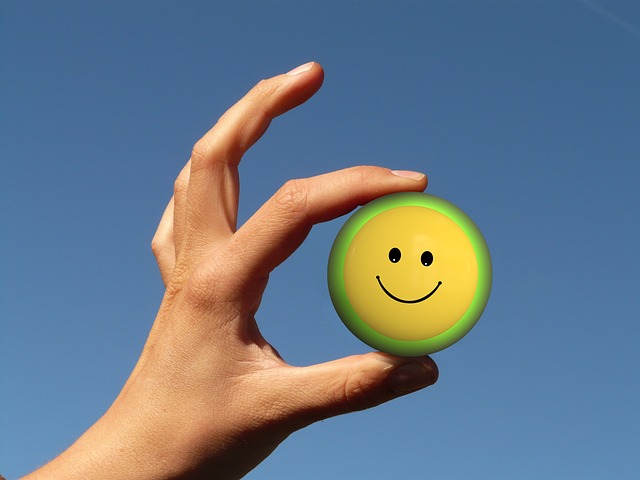
Today’s topic is positive psychology: what it is, what it isn’t and what it has to do with Vibe Shifting. It occurred to me the other day that I’ve never really talked about where the background for what I talk about on this web site comes from. Obviously, there’s a lot of philosophy and Law of Attraction in what I do, but there’s also a very big element of psychology involved as well. All of these areas overlap, of course, but today I want to focus specifically on the positive psychology aspect of what I do here.
Defining positive psychology
Positive psychology is a branch of psychology that focuses on the promotion of mental health and human flourishing, rather than on the treatment of mental illness. The official Positive Psychology Center website says that “Positive psychology is the scientific study of the strengths and virtues that enable individuals and communities to thrive.”
In other words, where traditional psychology focuses completely on what’s going wrong, and what to do about it when people become mentally ill, positive psychology is primarily concerned with what’s going on when things are going well and how to foster more of that in people and in communities. In short, positive psychology believes that life is about more than just fixing problems, and that understanding what makes life worth living will help us find better tools for helping everyone, everywhere.
History of positive psychology
Positive psychology as a field of study was first described by Dr. Martin Seligman, newly elected president of the American Psychological Association, in 1998. It grew out of the pre-existing field of humanistic psychology, which focuses on the “whole person” and holds that people are inherently good, that we are capable of choosing our own paths, and that we are driven towards “self-actualization”, or the realization of our full potential.
The humanistic psychology field was developed by Abraham Maslow and Carl Rogers in response to classical Freudian psychoanalysis, which they felt was needlessly pessimistic. (Psychoanalysis tells us that there is no such thing as free will because we are completely driven by our unconscious minds and our biology, and it views us all as being innately irrational and aggressive.)
Is positive psychology the same as positive thinking?
Obviously, with its emphasis on understanding happiness, strength and well-being, the positive psychology field appeals greatly to those who work with Law of Attraction, optimism and positivity. This, however, tends to make positive psychologists a little wary because what often happens is that “positive thinking” and “positive psychology” then get lumped together in the same boat, when they really are very different things.
Positive psychology, as explained above, is an actual, recognized branch of psychology. There are PhDs who work in this field and there is real, peer-reviewed empirical research being done under this mantle. Positive psychology understands the very real benefits of optimism and thinking positively, but it also recognizes that there are times when dealing with the negative is appropriate, and even advantageous.
Positive thinking, as a collective movement, and when taken to extremes, tells us all to just think positive thoughts all the time, no matter what is happening, with no regard for whether this is appropriate or helpful to the individual or situation at hand. (And yes, there really are times when positive thinking is not helpful – stay tuned for my next article when I delve into that more fully).
Vibe Shifting and positive psychology
Vibe Shifting is grounded more in positive psychology than in positive thinking. I strongly believe, from what I’ve seen in my own life, that focusing on the positive and maintaining an optimistic outlook are key adaptive strategies to being able to cope with the unexpected curve balls that life sometimes throws at us, and I believe that these traits are also necessary for creating the kind of future that we want for ourselves; it is only through hope, rational optimism and deliberate action that we can turn what is into what we desire. When we give in to despair and hopelessness, we stop believing that we have the power to change ourselves or our circumstances, so we don’t even bother trying. When we believe that we CAN, that is when we are most likely to actually DO.
I don’t, however, believe in turning a blind eye to any dangers or potential threats that are out there. I wear a seatbelt when I’m in a car, my children are fully immunized, I see a medical professional when I need to, and I keep an emergency preparedness kit in the house. It would be foolish not to do these things just because I consider myself an optimist; it’s just common sense to take precautions against preventable threats. What I don’t do, though, is spend time worrying about the threats; once I’ve put my preventative measures in place, I don’t think about possible badness. I focus myself on the good things, on the happy, creative and generally awesome things that I want to see and do in my life. Because this is what I want to see more of; not just for me, but for everyone around me, and for everyone whose life is touched by this site.
And this, in my opinion, is what positive psychology is really all about: understanding that we have a choice in how we think and react to the situations in which we find ourselves, and using this knowledge to develop tools and strategies for creating the kind of life we most want to live.
photo credit: pixabay.com cc
















